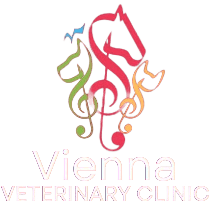Canine Parvovirus
Overview
• Canine Parvovirus is a contagious infection characterised clinically by a severe gastro-enteritis. The disease may result in a generalized bacterial infection and presence of bacterial toxins in the blood.
• Parvovirus may cause unmanageable and often fatal diarrhea in puppies.
• Rottweilers, Doberman Pinschers, Labrador retrievers, German shepherd dogs, English Springer spaniels, Alaskan sled dogs are considered to be more susceptible to canine Parvovirus infection than any other breeds of dog
• Most cases are seen between 6 weeks and 6 months of age
• More severe disease is seen in younger puppies
• Incidence has decreased dramatically with the vaccination of puppies against parvovirus
• Cats “Panleukopenia” is caused by another strain of Parvovirus, but cross-species transmission is unclear.
Symptoms
• Loss of energy, lethargy, anorexia, vomiting, and profuse diarrhea with rapid, severe weight loss
• Rapid heart beat
• Mucous membranes may be pale or deep red, due to the blood vessels being filled with blood, or jaundiced (yellow)
• Dehydration
• Pain or discomfort when the veterinarian feels the abdomen
• May have a fever or the body temperature may be lower than normal.
Diagnosis
Diagnosis is made with a quick in-house test on the stools. The test has a good sensitivity but there can be a false-negative result especially at the beginning of the course of the disease.
Treatment and prevention
Vaccination as early as 6 weeks then at 8 and 12 weeks of age, followed by yearly boosters, gives a good protection against the virus.
There is unfortunately no specific treatment against Parvovirus, but hospitalization for intensive therapy and supportive treatment significantly improves survival.
Hospitalized pets must be kept isolated from other pets; hospital personnel must follow proper cleaning and disinfecting practices to prevent spread of the virus.
Intravenous fluid therapy is a mainstay of treatment; fluid rates must account for maintenance needs plus ongoing losses, which may be profound due to vomiting and diarrhea.
The virus is extremely resistant in the environment and special disinfectants should be used to clean all exposed material and areas. The virus can be shed in the stools of an infected dog for few weeks after they have fully recovered, so appropriate quarantine should be applied even after recovery. The virus can live up to a year in your pet's environment so correct disinfection must be carried out to prevent reinfection.
Before socialising or walking your dog please check with us so that we can ensure they are fully protected against Canine Parvovirus.

